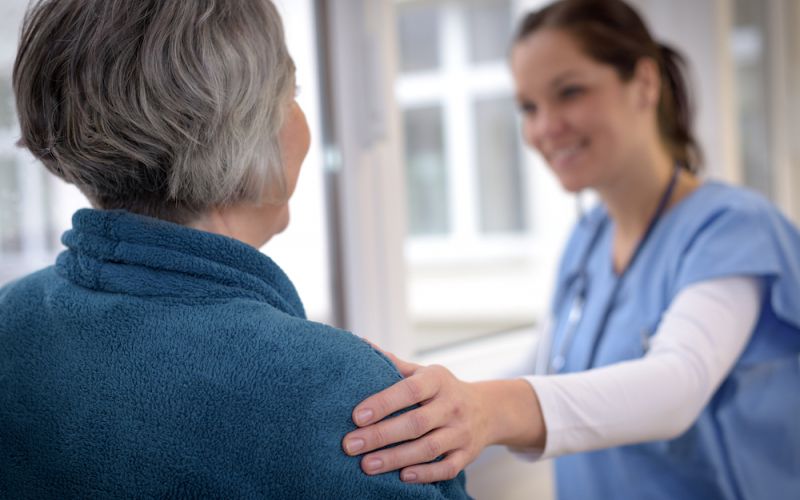While making it through cancer treatment is a wonderful thing, some survivors will continue to experience lasting effects on the body. Both men and women may experience physical changes that can affect their self-esteem. Because of this, it’s important to learn what you can do to make coping with these physical changes a little easier.
Cancer Can Have a Long-Term Impact on Your Body
The cancer treatment(s) you had may have had a very visible impact on your body. Some of these changes are permanent, while others, although not permanent, may be evident for months or even years. With all of these changes, it’s understandable that your self-esteem and confidence might be impacted to the point of having to adjust and accept what’s new for your post-treatment body.
There are some fairly common physical changes, both permanent and long-term, that survivors must learn to cope with. These include:
- Changes in the texture and color of hair
- Scars that are a result of surgeries that removed a limb, breast, or other part of the body
- Ostomy (an opening created in the body so wastes can be collected in a bag)
- Atrophy, which is reduced muscle tone as a result of inactivity
Medications can also impact physical changes including:
- Changes to skin tone
- Weight loss from medications or loss of appetite
- Weight gain from medications or restrictions limiting physical activity
Eating a healthy diet that includes good fats, lean proteins, and vegetables may help you avoid these becoming long-lasting issues. Increasing your level of physical activity to build muscle could also help.
Coping with Body Changes
Unless you’ve experienced cancer and the physical changes it causes, it can be hard to truly understand a survivor’s struggle with body image. Those who have not walked in your shoes may find it easy to think that you should be grateful you survived your illness and that you shouldn’t worry about how your body looks. The truth is, if you cared about your appearance before getting cancer, it’s likely that you’ll still care about it after going through cancer.
It’s no secret that having cancer is a life-changing experience— an experience that often gives survivors a new perspective on what is and is not important in life. By learning how to focus on the positive aspects about your body (not the least of which is that it is free from cancer), you’ll probably spend less time mourning physical changes you’re not happy about.
The following advice might help you during the times you are feeling self-conscious about aspects of your appearance:
- Remember that just because your body looks different on the outside, you are the same person on the inside. People who loved you before cancer will continue to love you and your post-cancer body!
- Go easy on yourself. It’s okay to grieve your pre-cancer body! Doing so will help you eventually move past those normal feelings and begin to get used to your new body.
- When you are ready, consider researching possible reconstructive surgery, cosmetic solutions, and/or prosthetics that may be able to help you look more like your pre-cancer self.
- Talk with other survivors. Above anyone else, they’ll be more likely to understand what you’re going through. In addition to validating your feelings, their experience and suggestions can help you find ways to cope.
- Understand that curiosity is natural and be prepared for questions about your appearance. The people closest to you (and some not so close) may ask questions. Decide how you’ll respond if people want to talk about changes to your appearance (if you don’t want to talk about these changes, simply tell them you’re not ready to talk about it at this time).
- While time does not heal all wounds, it can soften them. Some physical changes, such as hair loss, weight gain, or weight loss may go away eventually. Other changes like scars may become less noticeable over time.
- Focus on the positive. There are still things you can do to feel attractive! Depending on your unique physical situation, you can still get a manicure or pedicure; experiment with a beard, mustache, or goatee; buy some new clothes to accommodate changes to your body; have a makeover; try out new hairstyles, wigs, toupees, and/or hats; upgrade your eyeglasses; wear fun jewelry; etc., to draw attention to what you do love about your appearance.
Be sure to talk with your cancer care team and/or seek help from a professional counselor if you continue to struggle with body issues. You may also want to consider talking with one of the social workers we have here at Minnesota Oncology. They are here to help guide you through life after cancer, including coping with your new body.





